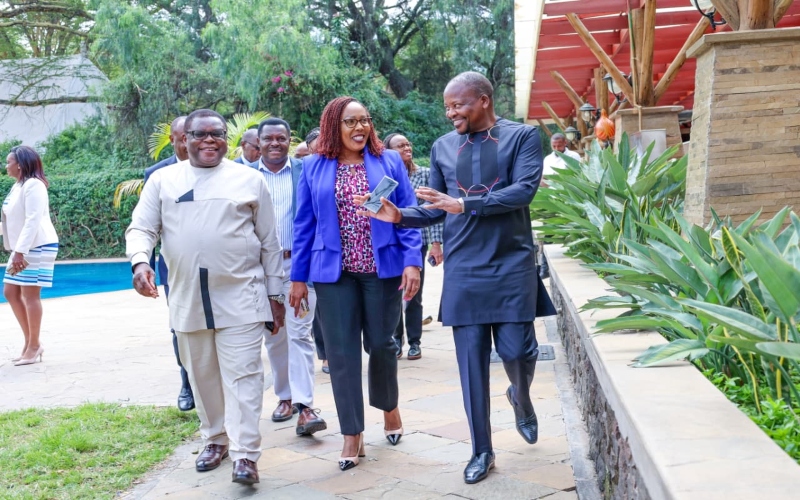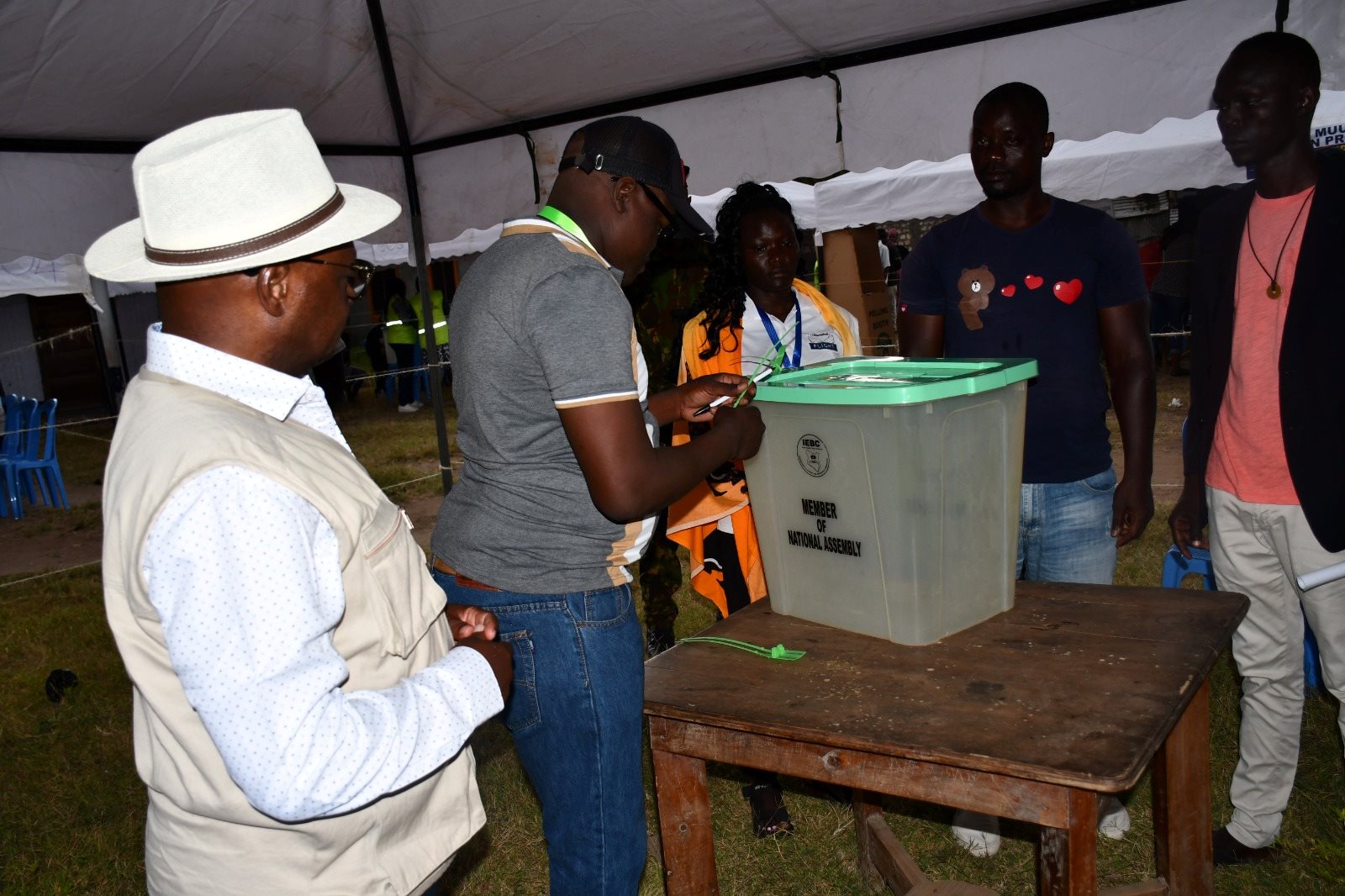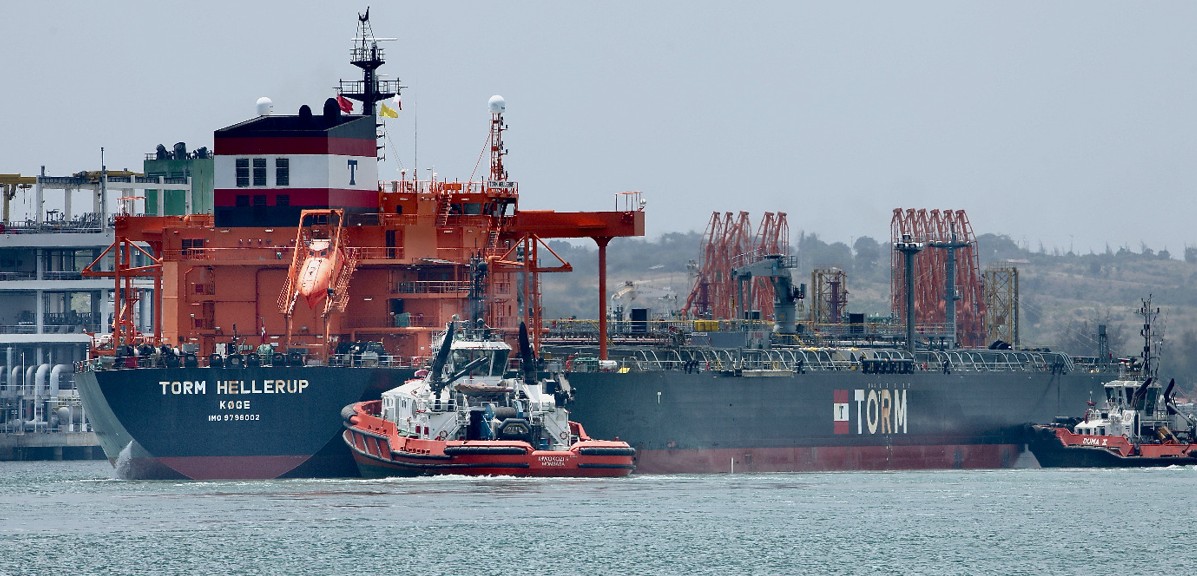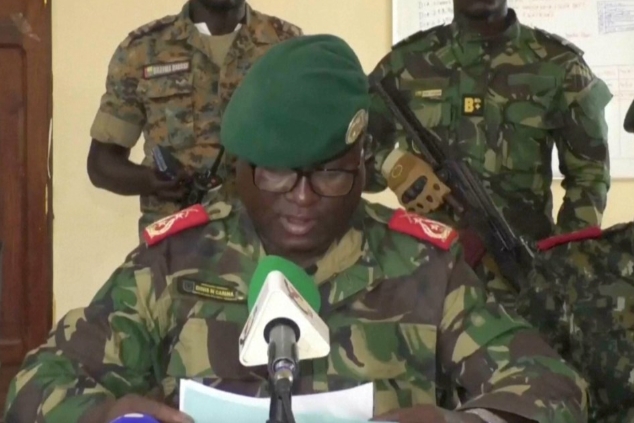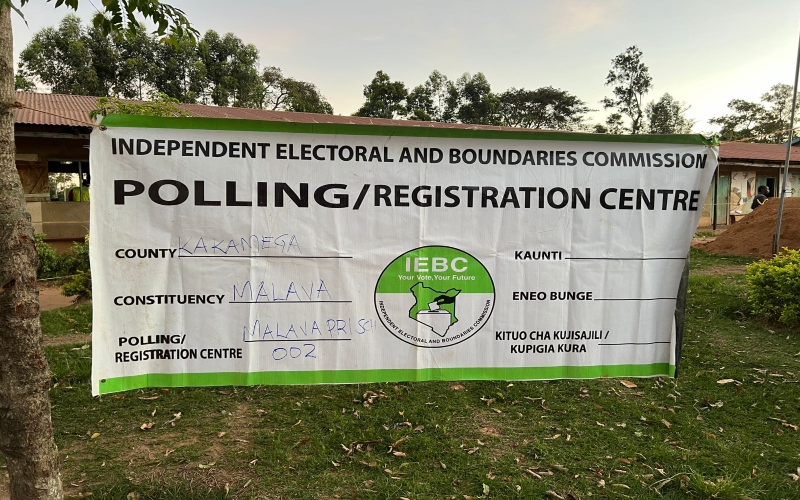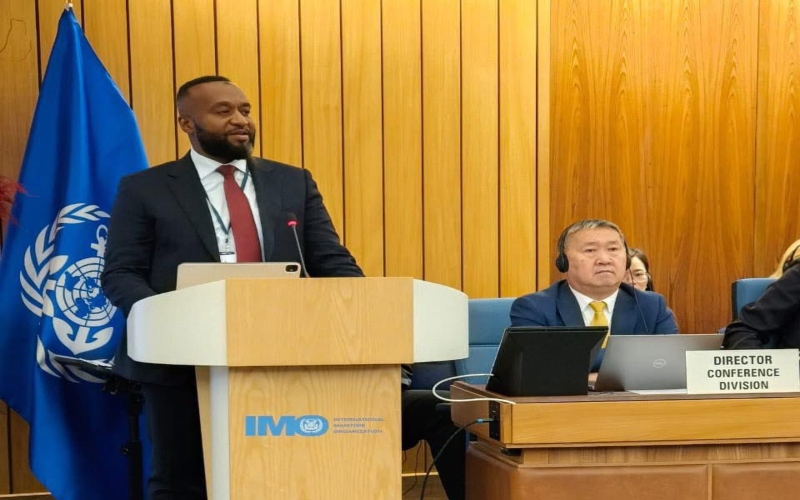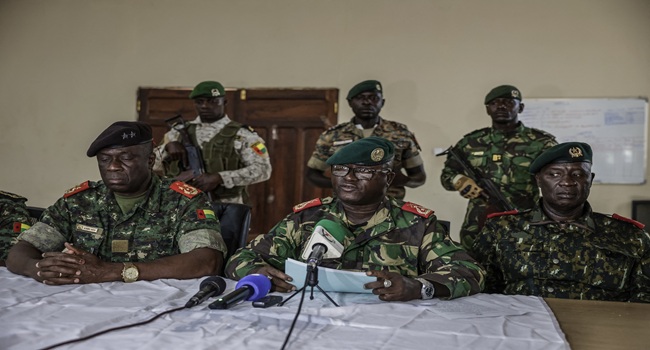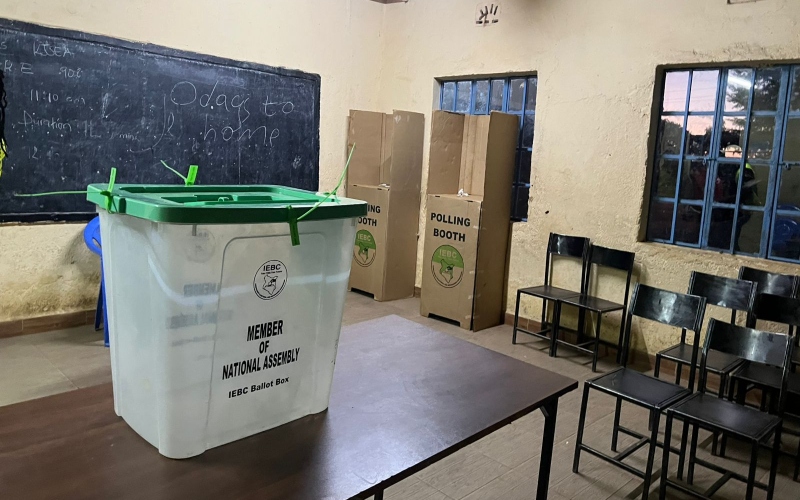DCI boss Mohamed Amin elected INTERPOL delegate for Africa at General Assembly
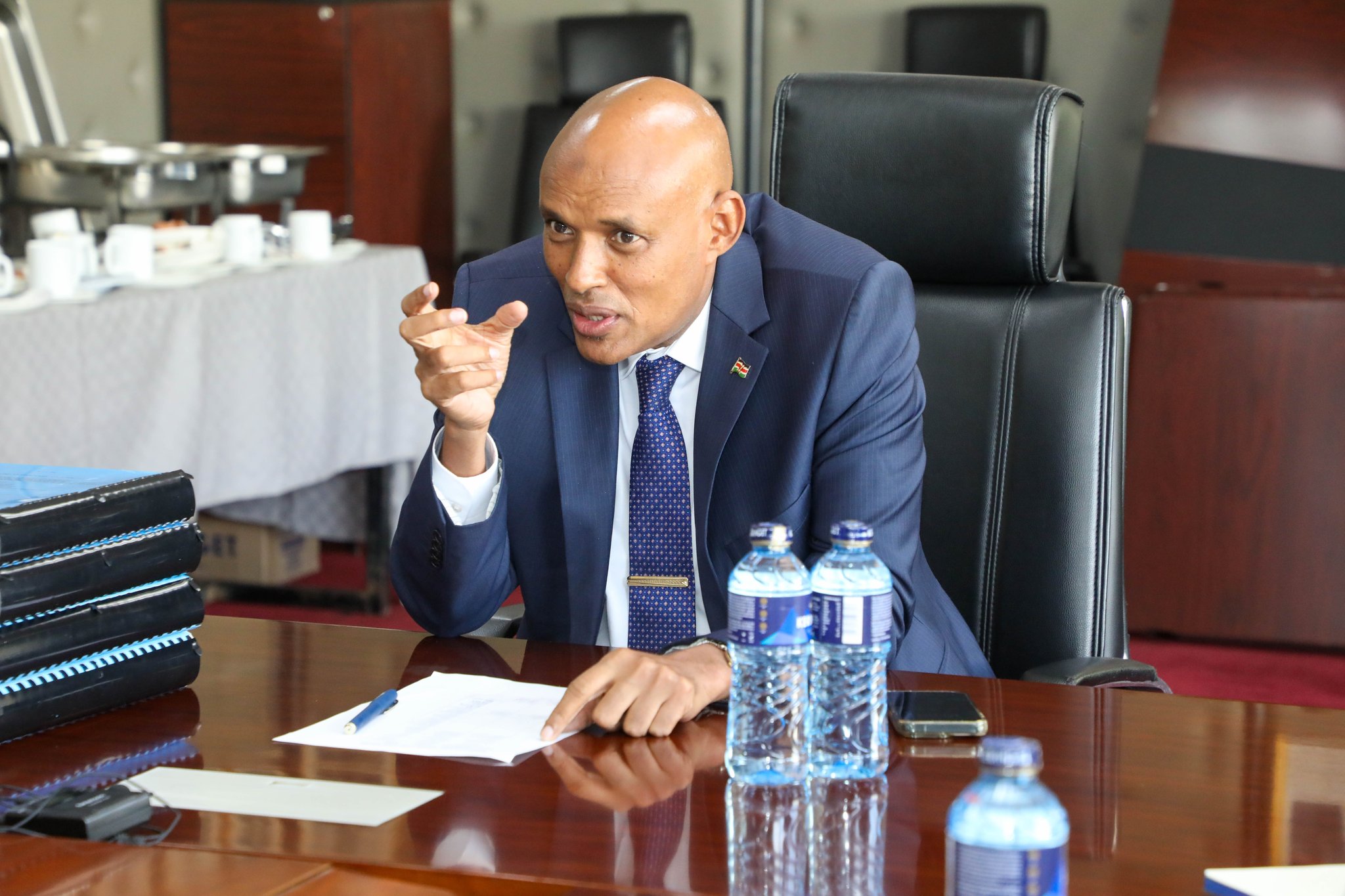
Mohamed will be tasked with joining the Executive Committee in providing strategic guidance, overseeing the implementation of General Assembly decisions, and ensuring alignment with the Organisation's priorities.
DCI boss Mohamed Amin has been elected as INTERPOL delegate for Africa for a period of three years.
The announcement was made on Thursday during the ongoing 93rd session of INTERPOL's General Assembly in Marrakech, Morocco, where six new executive members were elected to serve on its Executive Committee in the positions of President, the Vice-President for Asia, and Delegates for Africa, Asia and Europe.
More To Read
- Why are so few environmental criminals on Interpol’s ‘most wanted' list?
- Interpol flags online advertisements offering costly crossings into Europe
- Report links corrupt officials to rising criminal networks in Kenya
- Court declines to issue arrest warrants in Mwenda Mbijiwe disappearance case
- Madagascar seeks Interpol red notice for ex-President Andry Rajoelina's ally linked to Boeing deal with Iran
- Interpol operation against terror financing nabs 83, including two online recruiters in Kenya
Mohamed had been nominated alongside Cameroon's Zakari Yaou Alhadj, Divisional Commissioner, Director of Border Police, South Africa's Ntime Samson Mokhine, who is also a Brigadier and Head of the INTERPOL National Central Bureau of South Africa, and Tunisia's Issam Fetoui, the Police Commissioner General and Director General of Public Security at the Ministry of Interior.
The other new members are: Lucas Philippe of France (President), Wang Yong of China (Vice President for Asia), Tunisia's Issam Fetoui (the second delegate for Africa), Japan's Kazumi Ogasawara (Delegate for Asia) and Italy's Stefano Carvelli (Delegate for Europe).
As the delegate for Africa, Mohamed will be tasked with joining the Executive Committee in providing strategic guidance, overseeing the implementation of General Assembly decisions, and ensuring alignment with the Organisation's priorities. Members serve three-year terms, except for the President, who serves a four-year term.
Interior Cabinet Secretary Kipchumba Murkomen congratulated Mohamed, saying the nomination was a testament to Kenya’s growing leadership in international policing efforts.
He had earlier emphasised the importance of regional collaboration, noting that the future security of Eastern Africa hinges on the decisions made today. The CS reaffirmed Kenya’s commitment to working closely with partner states to strengthen safety, security, and prosperity across the region.
The General Assembly is INTERPOL's supreme governing body, comprising representatives from each of its 196 member countries.
Its annual meetings form the largest global gathering of senior law enforcement officials, which provides an important opportunity for countries to network and share experiences.
Member states are represented by one or several delegates who are typically chiefs of police and senior ministry officials.
Its purpose is to ensure that INTERPOL's activities correspond to the needs of the member countries, which it does by determining the principles and measures for the Organisation to reach its objectives, reviewing and approving the programme of activities and financial policy for the coming year, as well as analysing the major crime trends and security threats facing the world.
The Assembly takes decisions in the form of Resolutions, with each member country represented having one vote.
The decision-making process is made by either a simple or two-thirds majority, depending on the subject matter.
Among the agenda items for this year's assembly was how to identify and disrupt transnational organised crime, dismantle transnational scam centres, expand INTERPOL's global policing capabilities, women in policing, the Silver Notice pilot project results, and how to promote the ratification of the United Nations' Convention Against Cybercrime.
On Wednesday, the Assembly adopted a resolution to address the growing threat posed by transnational scam centres, which are criminal hubs linked to large-scale fraud, human trafficking and abuse.
Recommendations included calls for an increased international law enforcement response through real-time intelligence-sharing to identify perpetrators, locations, and modi operandi, multinational joint operations supported by INTERPOL, targeting of criminal financing and illicit assets linked to scam networks, and standardised emergency protocols to locate, rescue, and repatriate victims, as well as expanded victim support.
The assembly also resolved to conduct global awareness campaigns targeting vulnerable groups such as youths and job seekers who are often under the pretext of lucrative overseas jobs and trafficked into compounds where they are forced to carry out illicit schemes such as voice phishing, romance scams, investment fraud, and cryptocurrency scams targeting individuals worldwide.
INTERPOL notes that while not everyone working in a scam centre is a victim of human trafficking, those who are held against their will frequently endure abuse, including physical violence, sexual exploitation, torture, and rape.
"To effectively counter these criminal networks, we must strengthen collaboration, improve information sharing, and move forward with coordinated, decisive action. INTERPOL is committed to supporting the resolution's implementation and working with member countries to break these operations apart and protect the people who are most at risk," INTERPOL's Secretary General Valdecy Urquiza said.
Top Stories Today

